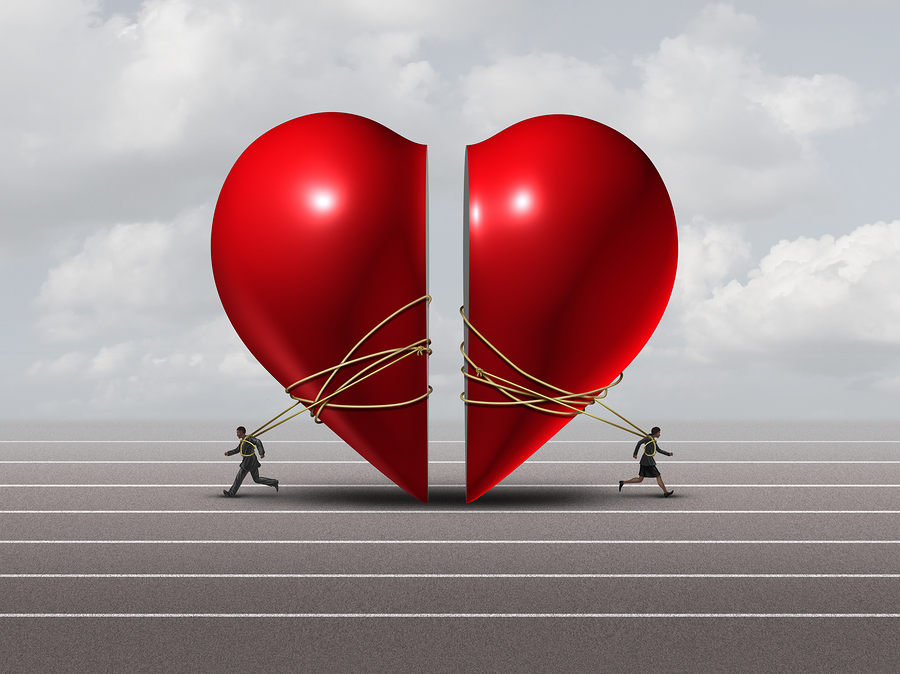 How can we distinguish a healthy relationship from an unhealthy one? Oftentimes, we see healthy relationships as fairy tales, whilst unhealthy relationships as horror stories. However, the reality is that some unhealthy relationships have a lot of love in them and some really good moments. Good enough to trick us into thinking everything is fine. And some healthy relationships have extremely difficult moments.
How can we distinguish a healthy relationship from an unhealthy one? Oftentimes, we see healthy relationships as fairy tales, whilst unhealthy relationships as horror stories. However, the reality is that some unhealthy relationships have a lot of love in them and some really good moments. Good enough to trick us into thinking everything is fine. And some healthy relationships have extremely difficult moments.
One of the most damaging aspects of being in an unhealthy relationship is the inability of one or both parties to identify and acknowledge the negative effects the relationship has had on them. Often, even our loved ones will be able to tell that we are in an unhealthy relationship, much before we realize that. Failure to identify sufficient problems in our relationship can create feelings of anger and resentment when confronted with evidence from our loved ones that the relationship is unhealthy. Consequently, we can start to isolate ourselves from them and that puts us at even higher risk to get hurt by the unhealthy relationship.
Given the latter, it is crucial that we are able to recognize if our relationship is unhealthy as soon as possible. Recognizing the signs of an unhealthy relationship on time will help us to save our relationship or end it before it escalates.
Signs of an Unhealthy Relationship
At times, all relationships will have some of the characteristics of an unhealthy relationship. No relationship is perfect. Irritations, shortcomings, failures, and disappointments always crop up. However, unhealthy relationships will exhibit these characteristics more frequently and they will cause us stress and pressure that is difficult to avoid. Consequently, an unhealthy relationship will have a detrimental effect on all areas of our life.
In an unhealthy relationship we:
-Put one person before the other by neglecting ourselves or our partner
-Feel pressure to change who we are for the other person
-Feel worried when we disagree with the other person
-Feel pressure to quit activities we usually used to enjoy
-Pressure the other person into agreeing with us or changing to suit us better
-Notice one of us has to justify our actions (e.g., where we go, who we see)
-Notice our partner feels obligated to have sex or has been forced to have sex
-Have a lack of privacy, and may be forced to share everything with the other person
-We or our partner refuse to use safer sex methods
-Notice arguments are not settled fairly
-Experience yelling or physical violence during an argument
-Attempt to control or manipulate each other (e.g., suicide threats)
-Notice our partner attempts to controls how we dress and criticizes our behaviors
-Do not make time to spend with one another
-Have no common friends or have a lack of respect for each others’ friends and family
-Notice an unequal control of resources (e.g., food, money, home, car, etc.)
-Experience a lack of fairness and equality
If our relationship has some of these characteristics it does not necessarily mean that it is unhealthy or that we should immediately end it. By recognizing how these characteristics affect us, we can begin to work on improving the negative aspect of our relationship, and, therefore, it can benefit our partner and us.
Signs of a Healthy Relationship
Equally important to being able to recognize an unhealthy relationship is the ability to recognize a healthy relationship. When it comes to protecting ourselves, knowing what constitutes a healthy relationship is the key. If we know how to recognize a healthy relationship, we will be able to work on our relationship from the beginning of it, and immediately notice and correct if something unhealthy starts to develop.
In a healthy relationship we are able to:
-Take care of ourselves and have good self-esteem independent of our relationship
-Maintain and respect each other’s individuality
-Maintain relationships with friends and family
-Have activities apart from one another
-Express ourselves to one another without fear of consequences
-Feel secure and comfortable
-Allow and encourage other relationships
-Take interest in one another’s activities
-Do not worry about violence in the relationship
-Trust each other and be honest with each other
-Have the option of privacy
-Have respect for sexual boundaries
-Be honest about sexual activity if it is a sexual relationship
-Accept influence. Relationships are give and take; allowing our partner to influence us is important.
-Resolve conflict fairly: Fighting is part of even healthy relationships, the difference is how the conflict is handled.
However, having a healthy relationship is not easy. In order to build and maintain a healthy relationship, we have to invest a lot of time and work in it and work as a team in order to overcome the difficulties that may arise.
Psychological Issues Associated with Unhealthy Relationships
There are various psychological issues associated with unhealthy relationships. Unhealthy relationships can lead to feelings of guilt, shame, anger, or low self-esteem. Furthermore, they can contribute to mental health conditions, such as depression, anxiety, and/or addictions.
The unhealthy relationships we have can also adversely affect our family members, such as our children. The children may repeatedly experience negative effects of the unhealthy relationships.
Unhealthy relationships have been linked to a range of mental and social problems, which only reflects the importance that our relationships have in our lives. Healthy relationships are a vital component of our health and well-being, given that they present an important source of advice, guidance, love and support.
Professional Help
Most romantic partners wait for six years after they know their relationship is in serious trouble before they seek therapy (Notarius & Buongiorno, 1992, as cited in Gottman & Gottman, 1999) So, after six years of unhappiness, couples decide to work on their problems. This is quite alarming for some couples as critical damage may be done during those six years.
It is extremely important to recognize as soon as possible that we have difficulties in our relationship. Then we can try to use our own resources and coping mechanisms to try and heal our relationship, or, if we find that task to be too difficult, we can try to find an appropriate professional help.
Having a psychologist to talk to can help us work out challenges in our relationships and find a solution that is healthy for us and our partner.
Literature
Gottman J.M. & Gottman J.S. (1999). The marriage survival kit. In Berger, R. & Hannah, M.T., (Eds.), Preventative approaches in couples therapy (pp. 304-330). Philadelphia, PA: Brunner/Mazel.
Hall Health Center Health Promotion Staff (2014, January). Healthy Vs. Unhealthy Relationships. Retrieved from http://depts.washington.edu/hhpccweb/health-resource/healthy-vs-unhealthy-relationships
About the Author

Hilda Huj
, B.A., M.A. Hilda is a registered clinical counselling and forensic psychologist in Edmonton, Alberta. She specializes in working with youth, adults and families that have been impacted by trauma. She completed a Bachelor of Arts and Master of Arts degree in Psychology in Osijek, Croatia, and subsequently equated her academic credentials to Canadian standards. Currently, she volunteers with the Edmonton Police Services as a Victim Support Worker and also helps to promote Psychology by volunteering for the Psychologists’ Association of Alberta.
Office Location:
Suite 39, 9912 - 106 Street
Edmonton, Alberta
T5K 1C5
Canada
Phone: 7804289223
Contact Hilda Huj
Professional Website:
www.archpsychological.com